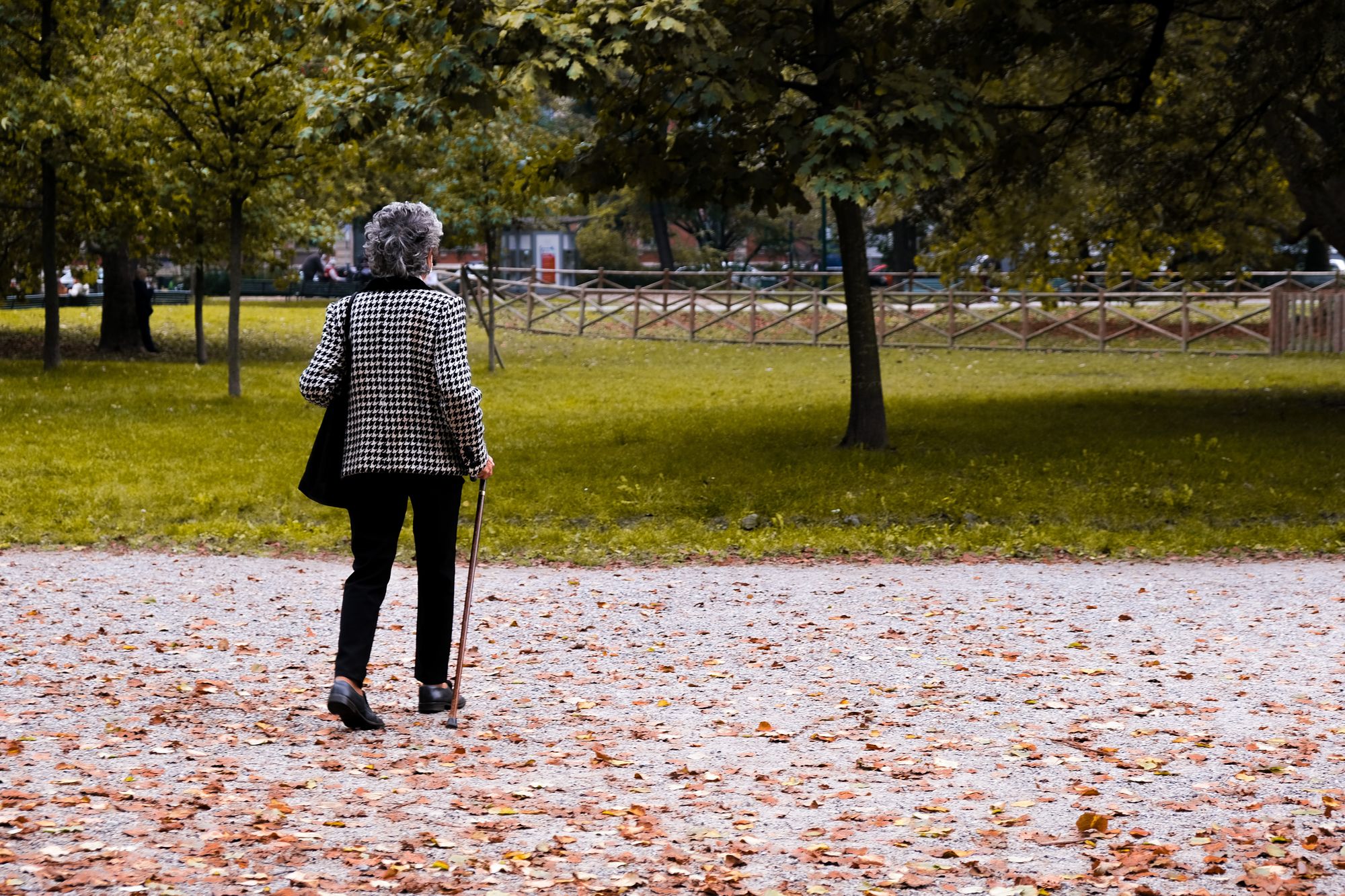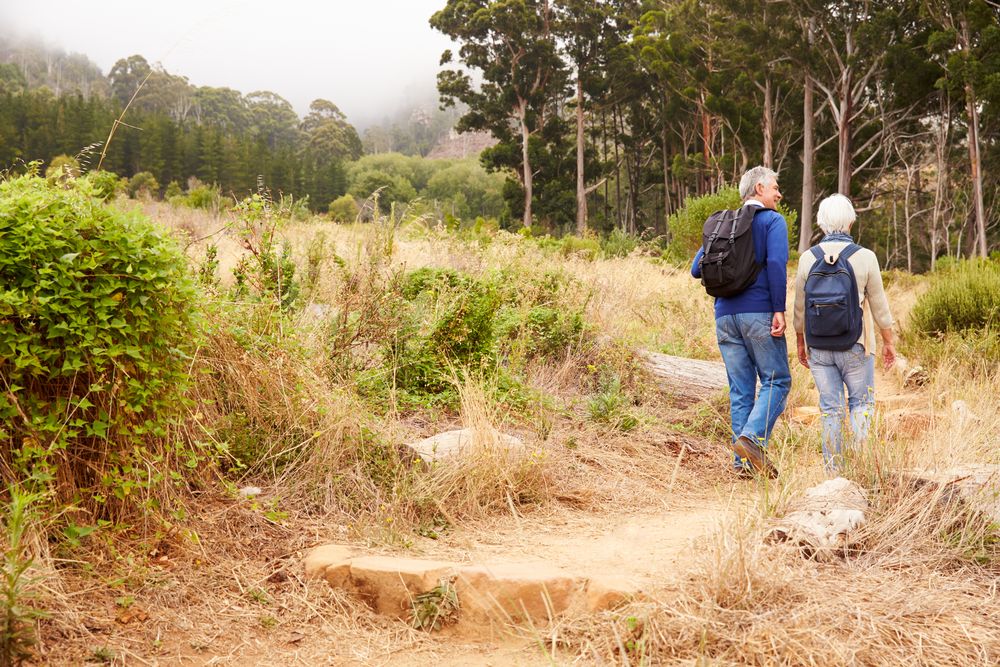
Sometimes the simplest things you and I do can be the best things for us. And they might just save our lives.
Yesterday I got a lengthy, thoughtful response from Dana Bennett, who lives in my old haunting ground of Denver. Her comments were on a piece I published yesterday that touched on research about how being fit helped make us far more immune to the effects of Covid.
Look, it doesn't take a rocket scientist to extrapolate that being fit makes us far more immune to ANYTHING. That is the point Dana makes here. I find the older I get the less tolerant I am of people far more invested in excuses than self-care, the kind of thoughtful, informed self-care which allows us options later in life.
In our sometimes ridiculous compulsion to find the secret sauce, such as a recliner which might do our exercise for us while we eat potato chips and watch reruns of Friends, we completely forget that we as humans are supremely well designed to do some very simple things which far too many of us just can't be bothered to do when there's a good series on Netflix. As in ambulate.

This is her response:
I'm 73 years old now and live in an affordable senior housing neighborhood in Denver. Because, affordable. There are a lot of things I like about it - single story duplex brick apartments for the most part. You have to be 62 to apply to get in here. I would NOT be living here if I really had my choices. But that was limited by an 11-year journey with a genetic auto-immune and rare (goddammit) liver disease. It finally led to a lifesaving liver transplant at Cleveland Clinic. When I first got sick I was fully engaged in teaching and tutoring writing at a community college here, lived near Washington Park, and walked about 5 miles a day. I had also begun a master's degree so I could get hired beyond an adjunct professor. I also danced tango whenever I could and worked out at a gym a couple times of week, lifting, swimming. But lots of walking. Then I got sick, like all of a sudden, at the end of my first year of grad school. I didn't know it then, but eventually I would lose a whole bunch of stuff (finished the degree with honors) - like career, eventually all work so I had to sell my very cool condo in Wash Park, and move in with my sister in Florida.
But one thing I never lost was all that walking I was doing to begin with. Yep, I walked all the way through that damn disease, even walked & ran the BolderBoulder in 2013 with a friend, until finally I could only walk maybe 30 minutes a day in that last year. The transplant center at UCH was never going to transplant me, so I called up Cleveland Clinic - and had a transplant within 6 months of my first phone call. I weighed 99 pounds when I arrived there for surgery. But I was moving (& bitchy) and survived 11 hours of surgery. So well, I flipped off my transplant surgeon when I first saw him in ICU.
I hate where I live because all the old people don't leave their apartments. You'd think there'd be a lot of walkers. Oh no! I got called a "girl" by some guy as I was walking back to my apt from my walk to and from the library to pickup books, drop some off. Why am I telling you this? Because I have the same message you have for just about everyone at any age. But especially for people who are - old enough to know better not to be sedentary. But they are. I've thought of starting a walking club but whoever I ask tells me some "reason" why they can't. To hell with it. My family is full of walkers and bikers and hikers. My grandfather lived to be 94 and the day he died, taught Sunday school, ate some lunch, walked to the cemetery to visit my grandmother's grave (she died at 94 also), went home. And died. That's how I want to go. (author bolded)
For those of you who sniff at this, kindly see this:

From the article:
Another study, published earlier this year in the American Journal of Preventative Medicine, examined nearly 140,000 men and women in the United States and came to the same conclusion. Engaging in at least 150 minutes per week of brisk walking was linked to a 20 percent reduction in all-cause mortality. (author bolded)
You notice Stulberg didn't say extreme endurance training. He said brisk walking, and brisk is determined by you and me and what we're capable of. I suspect that "brisk" for Dana right after her liver transplant might have been more of a "mosey" for many of us. And as those folks bypass someone like Dana or anyone else out on the walking path and laugh with derision (such a charming habit we have, isn't it?), we have no clue whatsoever the battle they may well have fought not only to be upright but to be walking in the first place.
But then, that takes emotional maturity. And, kindly, right about the time those folks have gone through what Dana has, or what other aging folks have, and find themselves incredibly fortunate to still be on earth, the idea of a brisk walk around Washington Park in Denver seems like a three-day marathon.

While yes of course, you and I need some strength exercise training, in an ideal world we'd be doing both. As we age, especially if we're thin, Caucasian or Asian, we can tend towards osteoporosis. My hips are osteoporitic, and that's largely from way too much sitting. In part due to Covid, but in larger part because I fractured foot bones repeatedly, making aerobic work damned hard to maintain. I am now back on track with a weighted vest, but it will take time to solve the problem. The best news is that it is in fact solvable but not if you and I relegate our aging bodies to the couch, as Dana notes above.
The way I see it, you can have reasons and excuses, or you can have a life. What Dana has is spirit. I would be driven mad by a community of folks who couldn't be bothered to get outside and walk, at the very least. We are crippling ourselves as a nation with convenience, and we further cripple ourselves through sheer laziness. And then we're not happy when our bodies, these superbly-designed machines, behave like a rusting old chassis up on blocks in the driveway.
Just one final, critical note. If you review Dana's story, you'll note how active she was before the liver transplant. There's no question in my mind whatsoever that one reason that she not only made it but she's thriving now is the kind of shape she was in before she got sick. Which is one reason I train very hard up to the day of a surgery. Something to that. The body loves to be healthy, and it will work as hard as you do to get there, return there, and stay there. But not if we take it for granted.
We are meant to be driven. Whether you go 5, 50 or 500 mph makes little difference. The difference is the drive to be alive.

Comments powered by Talkyard.